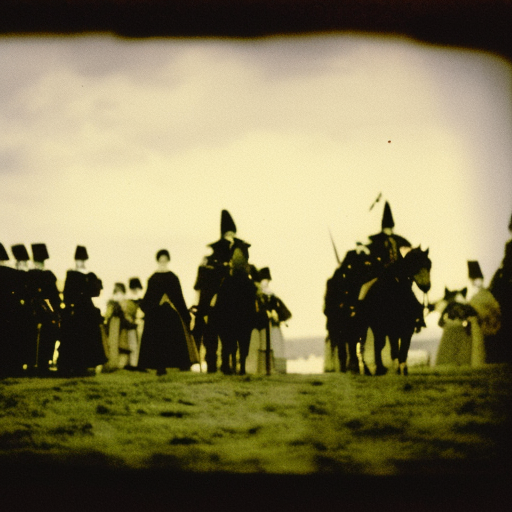The English Civil War (1642-1651)
The English Civil War was a conflict that took place in England from 1642 to 1651. It was a struggle between the monarchy, led by King Charles I, and Parliament, which sought to limit the king’s power. The war resulted in the temporary overthrow of the monarchy and the establishment of a republican government, known as the Commonwealth of England.
Causes of the English Civil War
The English Civil War had several causes, including political, religious, and economic factors. One of the main political causes was the struggle between the king and Parliament over the extent of royal authority. Charles I believed in the divine right of kings and sought to rule without interference from Parliament. However, Parliament, led by the Puritans, wanted to limit the king’s power and protect their own rights and privileges.
Religion also played a significant role in the conflict. England was divided between Anglicans, who supported the Church of England, and Puritans, who wanted to reform the church and eliminate what they saw as Catholic remnants. The king’s attempts to impose Anglican practices on the Puritans led to tensions and further divisions.
The Outbreak of War
Tensions between the king and Parliament escalated in 1642, leading to the outbreak of war. The conflict began when Charles I attempted to arrest five members of Parliament who were critical of his policies. This move was seen as a direct challenge to parliamentary authority and sparked outrage among the members.
The country quickly divided into two factions: the Royalists, who supported the king, and the Parliamentarians, also known as Roundheads, who opposed him. The Royalists were mainly composed of the nobility, the Church of England, and the rural gentry, while the Parliamentarians were supported by the middle class, Puritans, and the urban population.
The Course of the War
The English Civil War can be divided into three main phases: the First Civil War (1642-1646), the Second Civil War (1648-1649), and the Third Civil War (1649-1651).
During the First Civil War, both sides won significant victories, but neither was able to achieve a decisive advantage. The Parliamentarians, led by Oliver Cromwell, gradually gained the upper hand and defeated the Royalists in several key battles. In 1646, Charles I surrendered to the Scottish army, hoping to use them as allies against the Parliamentarians.
However, the Scottish army handed Charles I over to the Parliamentarians, who put him on trial for treason. In January 1649, Charles I was executed, marking the first time in history that a reigning monarch was publicly executed.
The Second Civil War broke out in 1648 when the Royalists, led by Charles II, attempted to regain power. However, the Parliamentarians swiftly crushed the rebellion and captured Charles II, who was forced to flee to France.
The Third Civil War took place between 1649 and 1651 and was primarily fought in Scotland and Ireland. The Parliamentarians, under Cromwell’s leadership, defeated the Scottish and Irish Royalists, consolidating their control over the British Isles.
The Aftermath
With the defeat of the Royalists, the Commonwealth of England was established in 1649. It was a republic led by Oliver Cromwell, who became Lord Protector. The Commonwealth faced numerous challenges, including internal divisions and external threats from other European powers.
In 1653, Cromwell dissolved the Rump Parliament and established a military dictatorship. However, his rule was unpopular, and after his death in 1658, the monarchy was restored with Charles II becoming king.
The English Civil War had a profound impact on English society and politics. It marked a turning point in the struggle for power between the monarchy and Parliament, and it set the stage for the Glorious Revolution of 1688, which established a constitutional monarchy in England.
In conclusion, the English Civil War was a complex conflict that arose from political, religious, and economic tensions. It resulted in the temporary overthrow of the monarchy and the establishment of a republican government. The war had a lasting impact on English society and paved the way for significant political changes in the future.












